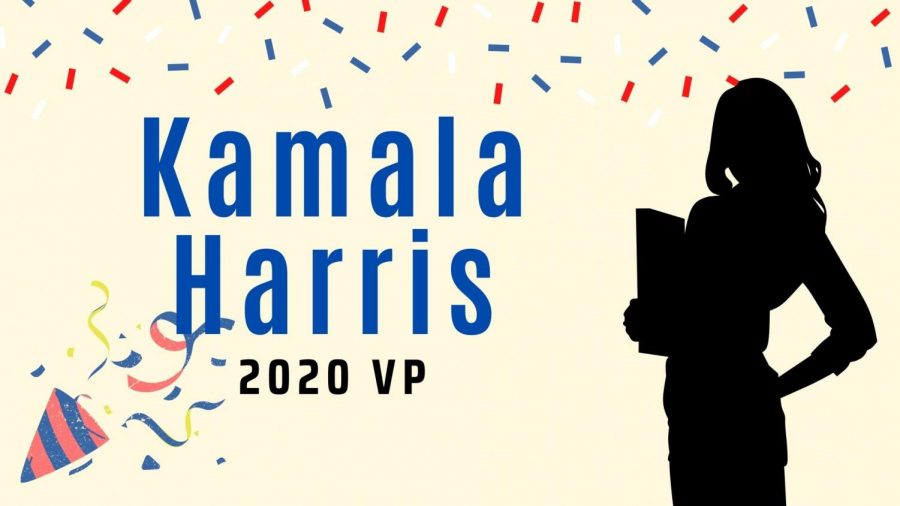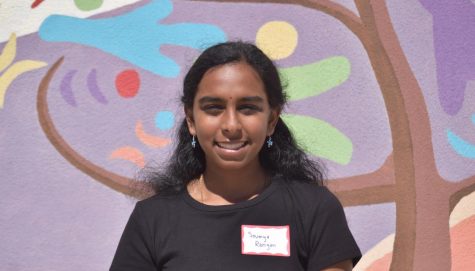“It’s pronounced Kam-a-la!”
A look into how much a simple mispronunciation of a cultural name can mean, especially in politics.
November 13, 2020
Following the recent win by the Democratic Party, people around America have been wondering how to pronounce the new VP-Elect, Kamala Harris’s name. This speculation is justified, but in some cases, it is taken to the extreme.
Many people with unique, ethnic names have felt discouraged and frustrated when people do not make an effort to say their name the way they prefer it.
It may seem trivial to some, but when there is consistent mispronunciation regarding a person in power, specifically a POC, it can reflect poorly on the people they are meant to represent.
This disregard for people’s names translates directly to students and adults feeling that they are not accepted for their name.
Xuan-Mai Nguyen (‘21) replied, saying that “constantly having to correct people about the pronunciation of my name eventually becomes draining and makes you not want to put in the effort anymore to even defend your own worth and pride – something that can be extremely damaging for those who are not in an environment where they are confident in themselves and their culture.”
As Nguyen points out, this constant correction leads to damaged self-esteem. Having to go through an undermining of a person’s self-esteem is hard on many people, and it impairs their self-worth and pride. However, some people take a different approach to mispronouncing a person’s name.
“If the person cannot pronounce my name due to their accent or because they just can’t, then I would not be offended and won’t correct them. If the person purposely mispronounces my name and I know that they can say it correctly, it would definitely annoy or bother me,” responded Sahana Ravishankar (‘22).
This is also justifiable because if the person trying to pronounce the name really doesn’t know or can’t pronounce it, that does not mean that the person is intentionally undermining your worth. Achint Kaur (‘23), also took a similar viewpoint.
“I don’t really mind when people mispronounce my name, I just correct them and tell them how it’s actually said. If they mispronounce it on purpose that is kinda annoying but it doesn’t affect me that much, mostly because I don’t let it get to me,” said Kaur.
However, for others, it brings them down in conversations, making their worth disregardable, and having them disrespected many times.
“Akin to misgendering someone by using the wrong pronouns or deadnaming someone, mispronouncing someone’s given or preferred name conveys an egregious and unhindered disrespect toward them – not only their opinions, thoughts, and actions, but also toward how they are perceived as simply a human being,” said Nguyen.
Not calling people by their preferred pronouns and names shows that their opinions and actions are not worth listening to. “You could use ‘he’, ‘she’ or something to address the person rather than mispronouncing the name… It is disrespectful, both in casual and serious conversation[s]” commented Ravishankar.
Misnaming people happens in the public world, as well as in small conversations. The incumbent President Trump and many other news hosts have not made the effort to call Kamala Harris by the pronunciation that is correct, even though she has corrected them numerous times.
Nguyen responded to this thought by saying, “I think that President Trump goes out of his way to look down upon his adversaries in … ways that … affect the individuals he talks to greatly… By not choosing to listen to someone about their given name and how they wish to be addressed, you are essentially demonstrating how you don’t see them as an equal or someone who deserves to have their opinions voiced.”
This type of disrespect “undermines her status and worth. IIf he continues to mispronounce her name despite numerous times of correction, it gives an attitude that he does not care and that he feels he is superior to her,” replied Ravishankar.
There are many ways to shake this undermining off, and first things first is to accept that your name might be hard and that people might take time to get the pronunciation. One also needs to understand that it isn’t wrong to have a long name and that being proud of your heritage and culture is key to having high self-esteem.
Kaur responded to the mispronunciation of Harris’s name by saying that “she [is] still an absolute queen.” This is because she believes in her worth, in her ideas and opinions, and she is proud of her heritage and culture. She is able to go past all of the disrespect to get to the important issues.




